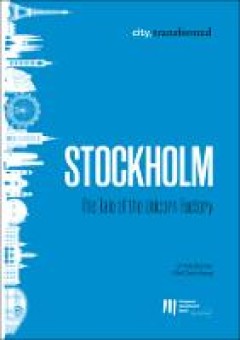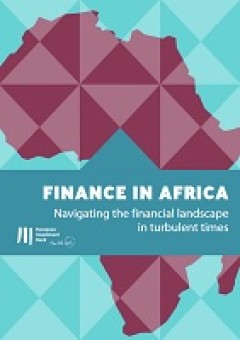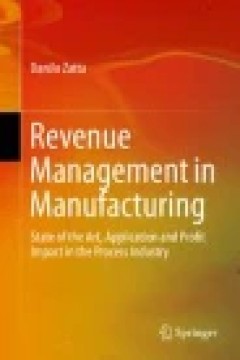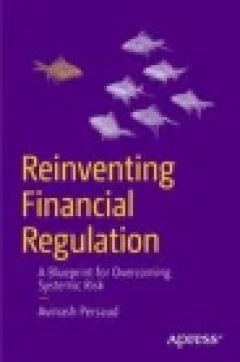Filter by

Understanding Consumer Financial Behavior Money Management in an Age of Fina…
Government policies, marketing campaigns of banks, insurance companies, and other financial institutions, and consumers' protective actions all depend on assumptions about consumer financial behavior. Unfortunately, many consumers have no or little knowledge of budgeting, financial products, and financial planning. It is therefore important that organizations and market authorities know why con…
- Edition
- -
- ISBN/ISSN
- 978-1-137-54425-4
- Collation
- -
- Series Title
- -
- Call Number
- -

Stockholm: The Tale of the Unicorn Factory (Volume 6)
Once upon a time there was a city in a cold place a long way to the north. One day the city started to tell a story about itself. As the chapters unfolded, life in the city changed, and soon it didn’t even seem so cold or far away any more. People listened to the story and realised that the city wasn’t quite what they expected. They started to tell the story to each other about how the city…
- Edition
- -
- ISBN/ISSN
- 9789286139086
- Collation
- -
- Series Title
- -
- Call Number
- -

Finance in Africa
Banks in Africa are weathering the COVID-19 pandemic well and showing a lot of creativity to overcome the crisis’s problems. But the war in Ukraine is causing new concerns. With interest rates rising in many countries and bond funding becoming more expensive, a significant number of banks are worried about rising financing costs. These issues and more are covered in the new Finance in Africa …
- Edition
- -
- ISBN/ISSN
- 978928615382
- Collation
- -
- Series Title
- -
- Call Number
- -

Artificial Intelligence in Financial Markets: Cutting Edge Applications for R…
As technology advancement has increased, so to have computational applications for forecasting, modelling and trading financial markets and information, and practitioners are finding ever more complex solutions to financial challenges. Neural networking is a highly effective, trainable algorithmic approach which emulates certain aspects of human brain functions, and is used extensively in finan…
- Edition
- Ed. 1
- ISBN/ISSN
- 978-1-137-48880-0
- Collation
- XV, 344
- Series Title
- New Developments in Quantitative Trading and Investment
- Call Number
- 006.3 ART a

EIB Working Papers 2020/03 - Employer provided training in Europe : Determina…
This report looks at employer–provided training in Europe. Starting with a brief outline of the economic theory of training, it turns to recent developments by combining data from two employer surveys, the European Investment Bank’s Investment Survey (EIBIS) and Eurostat’s Continuous Vocational Training Survey (CVTS). It reviews the recent empirical literature on the relationship between …
- Edition
- -
- ISBN/ISSN
- 9789286143793
- Collation
- -
- Series Title
- -
- Call Number
- 657.48

Art Wealth Management: Managing Private Art Collections
This book offers an overview of how to manage private art collections, providing essential insights on art wealth management, art investment, art governance, and succession planning for art assets. It offers practical recommendations on sound art collection governance, but also examines the background of art markets and price building, including the influence of fashion and trends. Throughout h…
- Edition
- Ed. 1
- ISBN/ISSN
- 978-3-319-24241-5
- Collation
- XIII, 162
- Series Title
- Management for Professionals
- Call Number
- 658.15 ART a

Handbook of Ratings Approaches to Ratings in the Economy, Sports, and Society
This handbook presents a systematic overview of approaches to, diversity, and problems involved in interdisciplinary rating methodologies. Historically, the purpose of ratings is to achieve information transparency regarding a given body’s activities, whether in the field of finance, banking, or sports for example. This book focuses on commonly used rating methods in three important fields: f…
- Edition
- -
- ISBN/ISSN
- 978-3-319-39260-8
- Collation
- XVIII, 356
- Series Title
- -
- Call Number
- 330 KAR h

Revenue Management in Manufacturing
This book focuses on the application of revenue management in the manufacturing industry. Though previous books have extensively studied the application of revenue management in the service industry, little attention has been paid to its application in manufacturing, despite the fact that applying it in this context can be highly profitable and instrumental to corporate success. With this work,…
- Edition
- Ed. 1
- ISBN/ISSN
- 978-3-319-30240-9
- Collation
- -
- Series Title
- -
- Call Number
- -

Contagion! : systemic risk in financial networks
This volume presents a unified mathematical framework for the transmission channels for damaging shocks that can lead to instability in financial systems. As the title suggests, financial contagion is analogous to the spread of disease, and damaging financial crises may be better understood by bringing to bear ideas from studying other complex systems in our world. After considering how people …
- Edition
- -
- ISBN/ISSN
- 9783319339306
- Collation
- ix, 139 pages
- Series Title
- -
- Call Number
- 370

Reinventing Financial Regulation
Reinventing Financial Regulation offers an analysis of the fundamental flaws that plague the current system of financial regulation, one built around ideas of "risk-sensitivity" and "capital adequacy." Author Avinash Persaud argues that while some sensible reforms have been introduced, a fresh approach—centered on risk capacity—is required. When the entire regime is compromised, simply slap…
- Edition
- -
- ISBN/ISSN
- -
- Collation
- -
- Series Title
- -
- Call Number
- -
 Computer Science, Information & General Works
Computer Science, Information & General Works  Philosophy & Psychology
Philosophy & Psychology  Religion
Religion  Social Sciences
Social Sciences  Language
Language  Pure Science
Pure Science  Applied Sciences
Applied Sciences  Art & Recreation
Art & Recreation  Literature
Literature  History & Geography
History & Geography